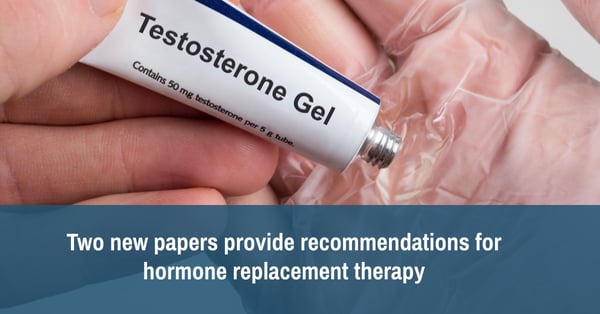Two new papers from an international group of PWS expert physicians outline the clinical experience and provide recommendations for sex hormone replacement therapy in adult males and females with PWS.
These papers are freely available to download and share with your care team:

For males, an analysis of 57 men with PWS found that 98% of them had hypogonadism, which is a deficiency of sex hormone production. Sometimes the cause of the hypogonadism was failure of the pituitary gland in the brain, in other cases it was due to a deficiency in the function of the testicles, and in many cases, both issues were at play. The result is that most adult males with PWS have testosterone levels that are below normal range. This is a concern because low testosterone levels can lead to increased fat mass, decreased bone health, poor cardiovascular health, fatigue and depression. Thus, these experts recommend regular screening for hypogonadism and testosterone replacement therapy for adult males with PWS who show low testosterone. Testosterone can be provided in several different forms – by pill, as a daily gel or patch, or as an injection, and most experts favored either using the gel or injection.
One concern families sometimes express is that increasing testosterone levels might make aggressive behaviors, already common in PWS, worse. However, most of the physicians felt that normal testosterone levels could be reached without causing increased behavioral problems, and that normal testosterone levels would improve quality of life for most men with PWS. These experts recommended starting with lower doses and gradually working up to full dose needed to bring testosterone levels into the normal range.
A majority of adult females with PWS also have hypogonadism, with lower than normal levels of estrogen. As in males, hypogonadism is sometimes due to inadequate function of the pituitary, sometimes because of poor ovarian function, and sometimes both. Since hypgonadism in females is associated with an increased risk of osteoporosis, decreased muscle strength and decreased quality of life, the clinical experts recommend assessing adult women with PWS and considering hormone replacement therapy (estrogen + progesterone) for those with low sex hormone levels. For women, considerations such as whether the individual is sexually active, the desire (or not) to experience menstruation, and medical issues such as risk of blood clots should all be considered in determining the best hormone replacement therapy for the individual.








